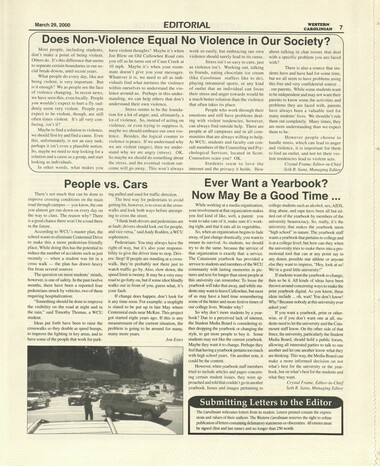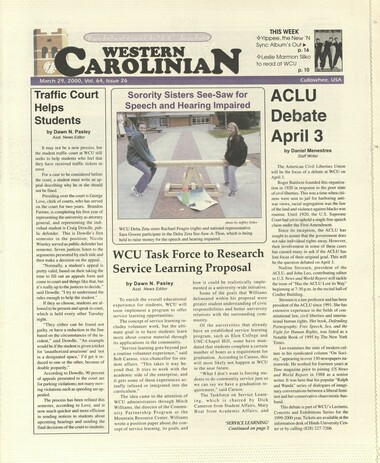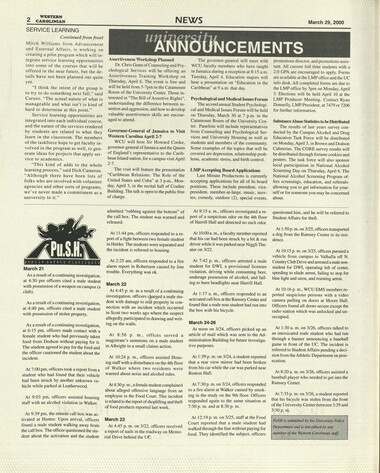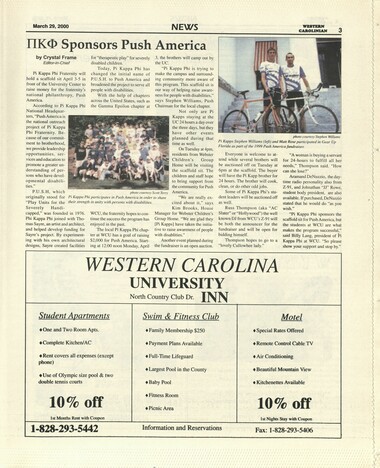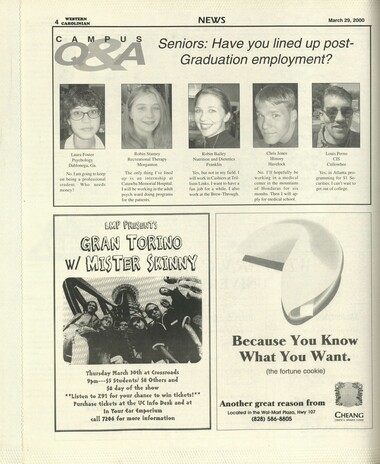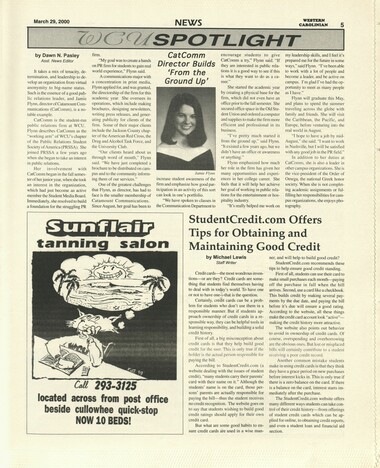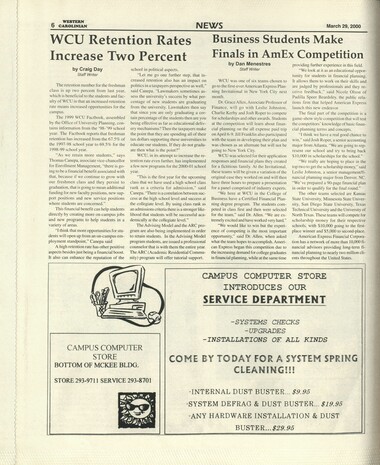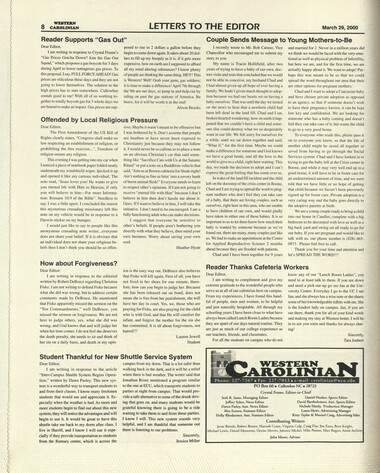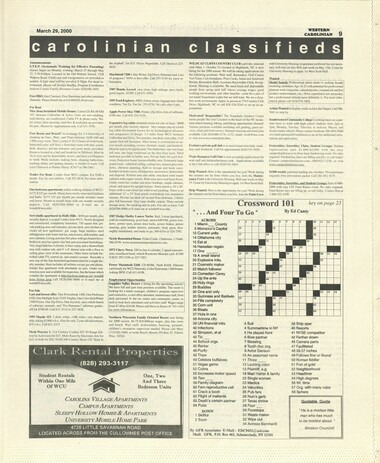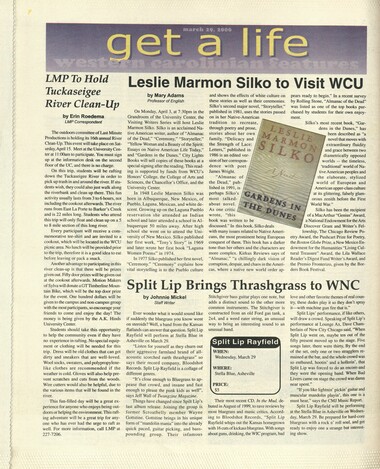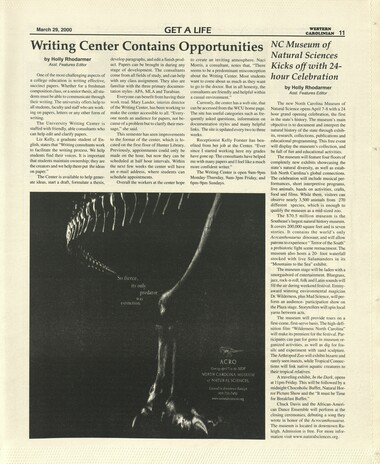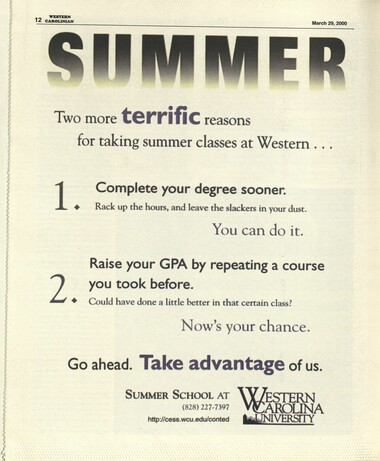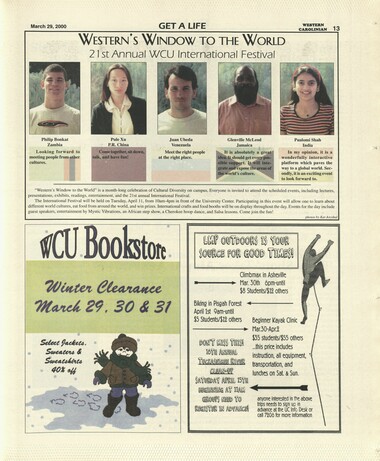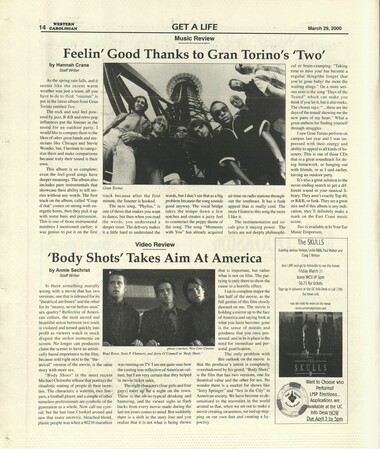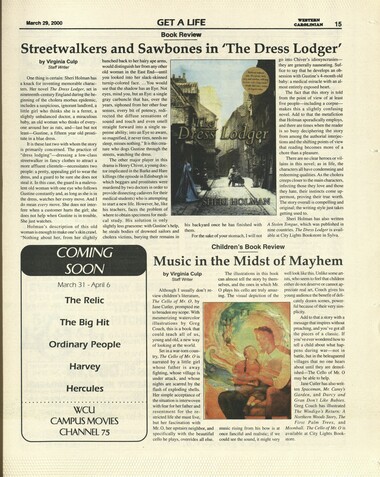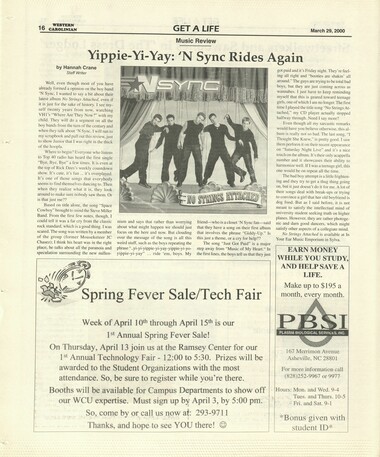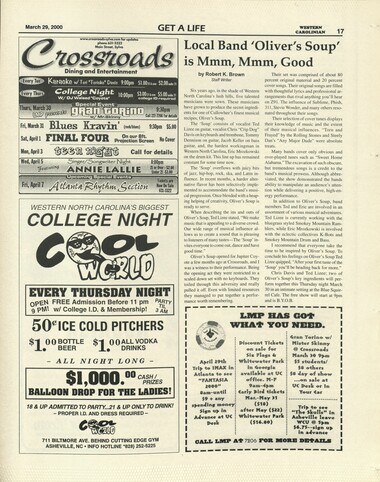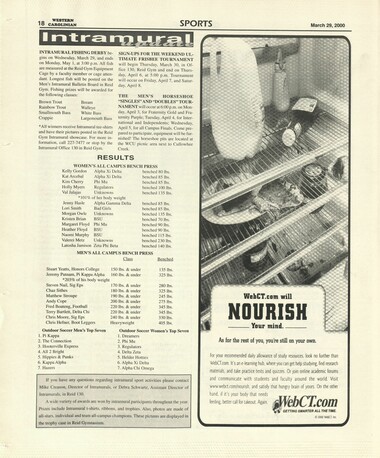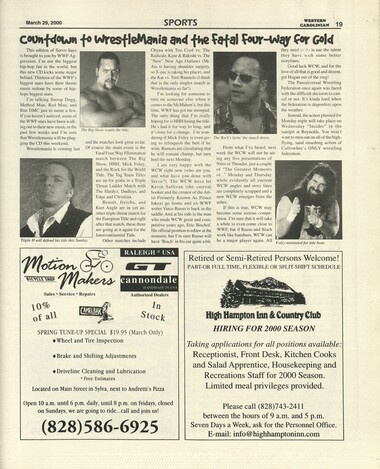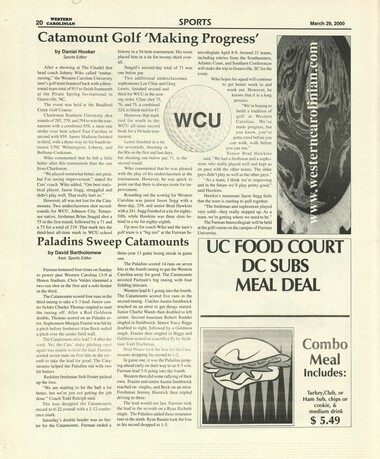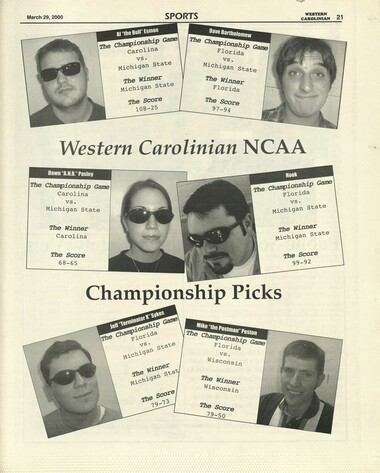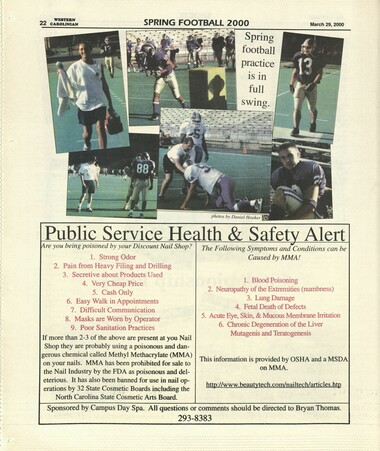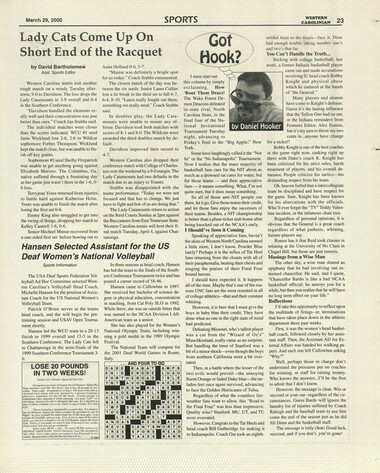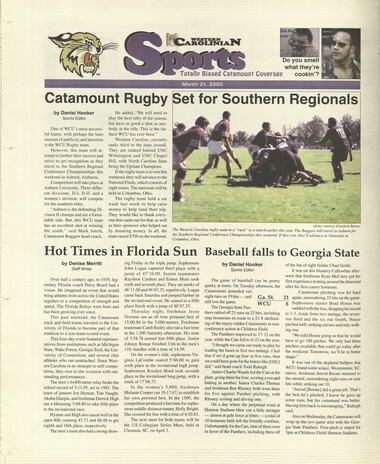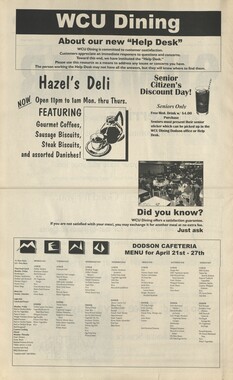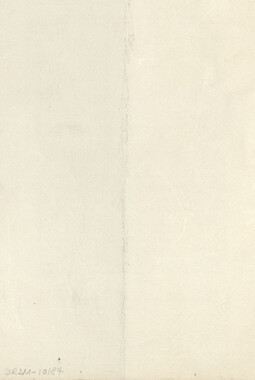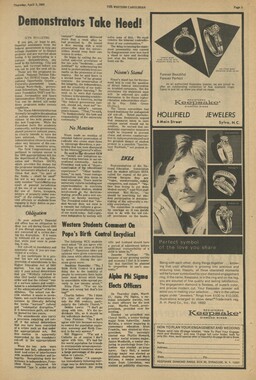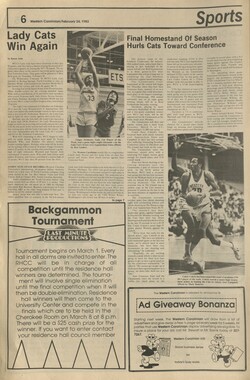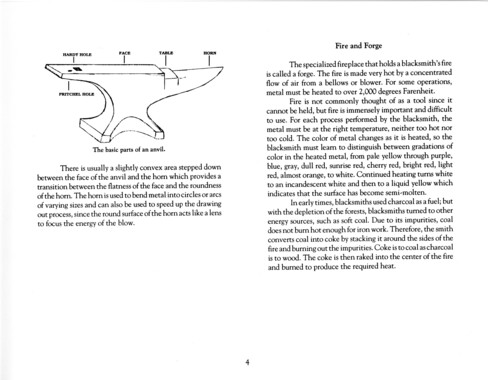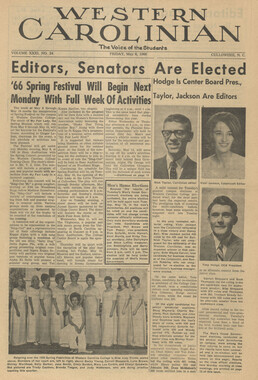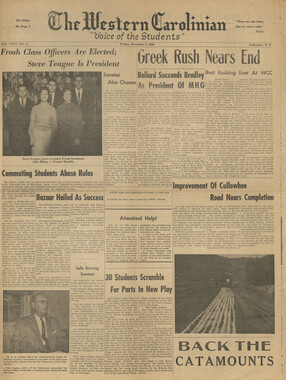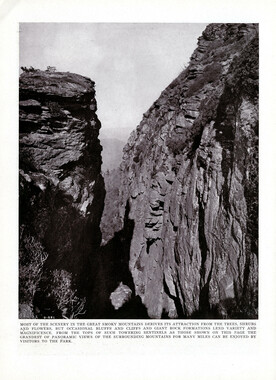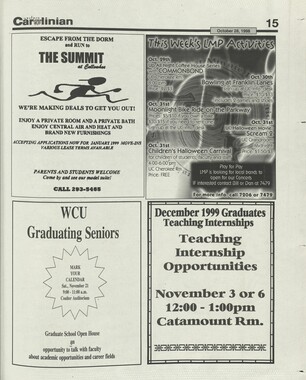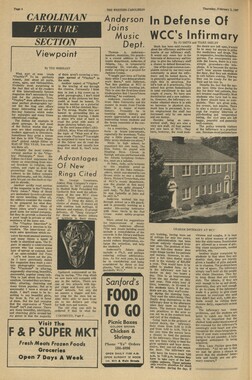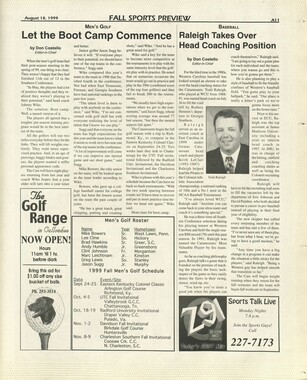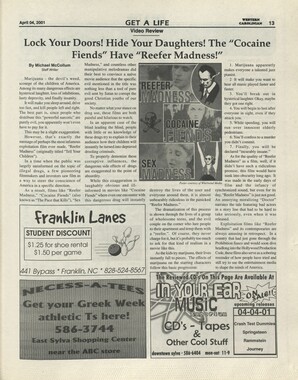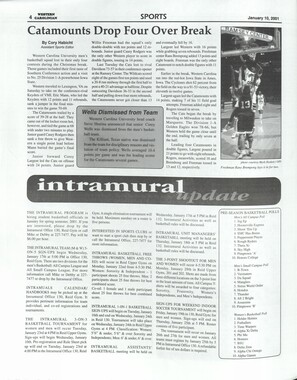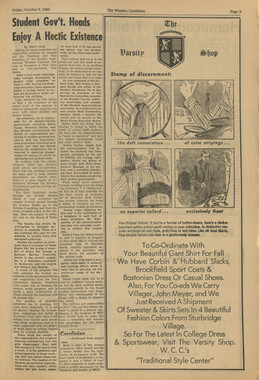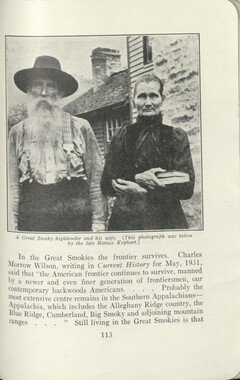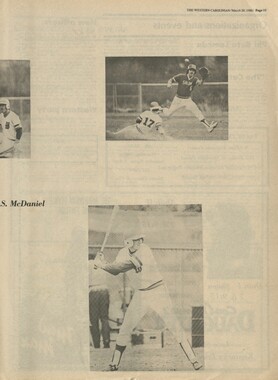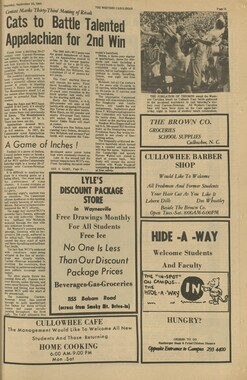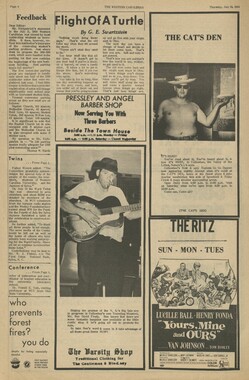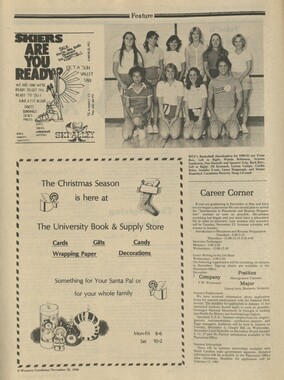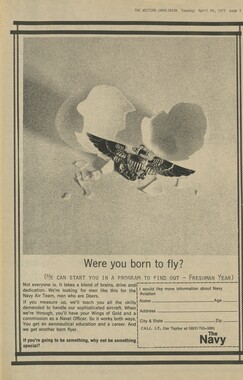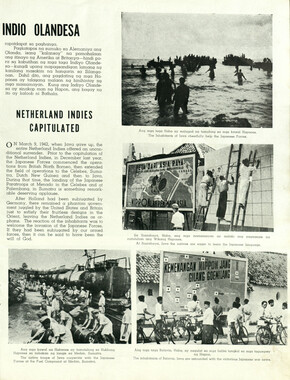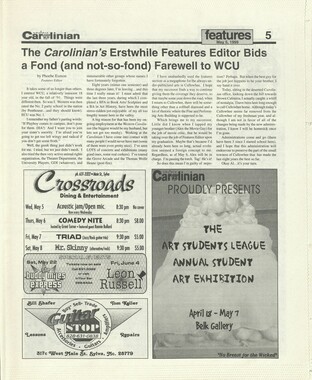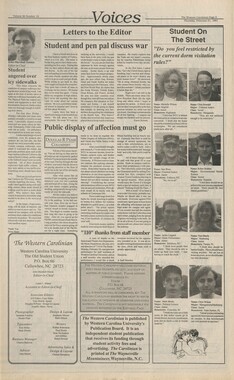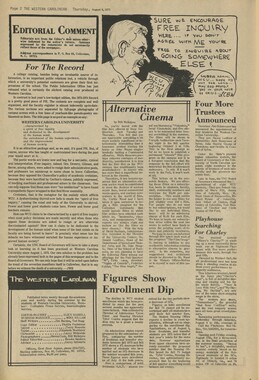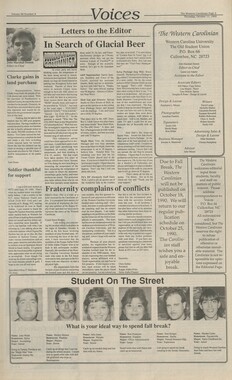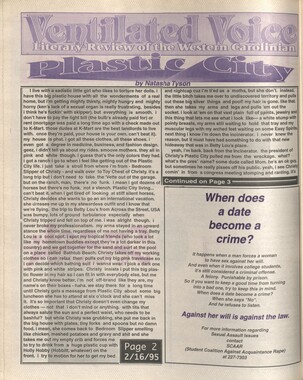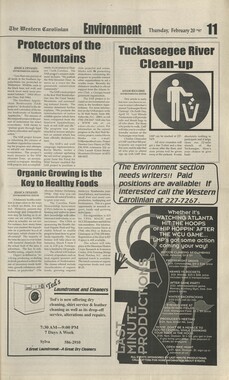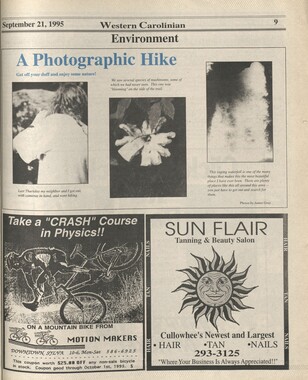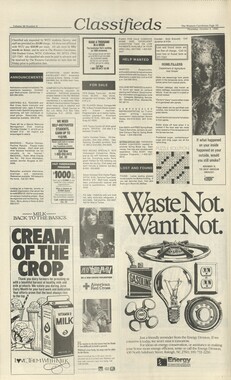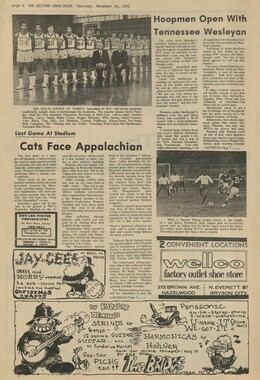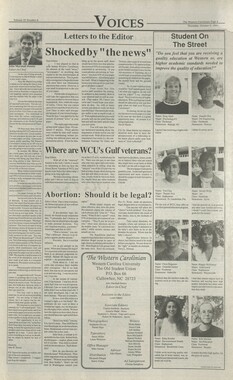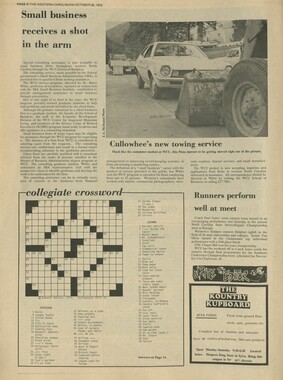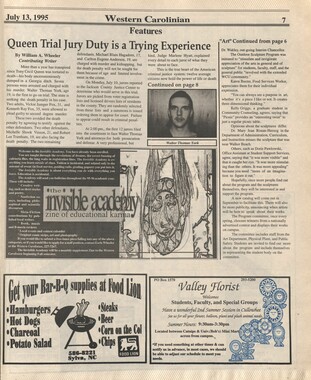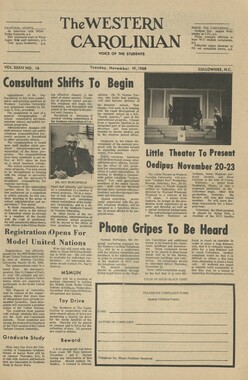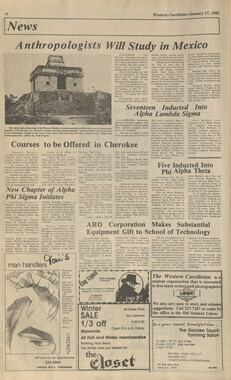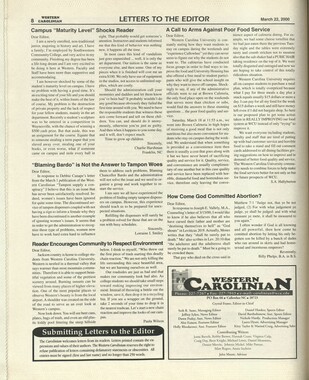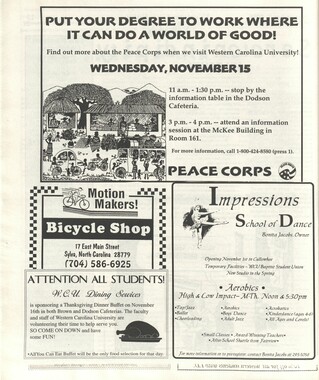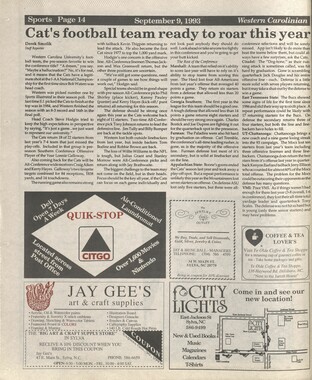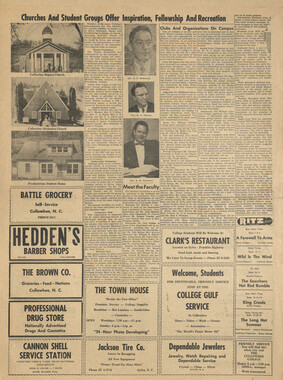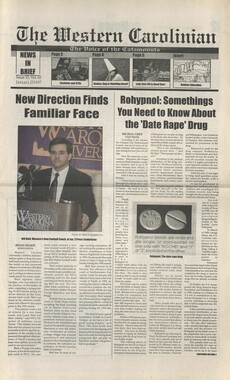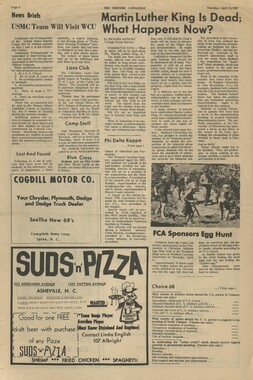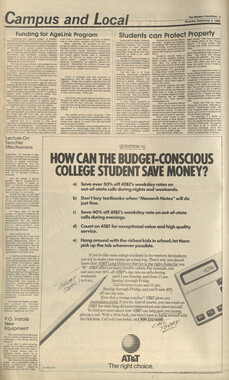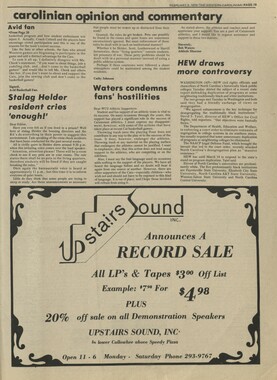Western Carolina University (20)
View all
- Canton Champion Fibre Company (2308)
- Cherokee Traditions (293)
- Civil War in Southern Appalachia (165)
- Craft Revival (1942)
- Great Smoky Mountains - A Park for America (2767)
- Highlights from Western Carolina University (430)
- Horace Kephart (941)
- Journeys Through Jackson (154)
- LGBTQIA+ Archive of Jackson County (26)
- Oral Histories of Western North Carolina (314)
- Picturing Appalachia (6772)
- Stories of Mountain Folk (413)
- Travel Western North Carolina (160)
- Western Carolina University Fine Art Museum Vitreograph Collection (129)
- Western Carolina University Herbarium (92)
- Western Carolina University: Making Memories (708)
- Western Carolina University Publications (2283)
- Western Carolina University Restricted Electronic Theses and Dissertations (146)
- Western North Carolina Regional Maps (71)
- World War II in Southern Appalachia (131)
University of North Carolina Asheville (6)
View all
- Allanstand Cottage Industries (62)
- Appalachian National Park Association (53)
- Bennett, Kelly, 1890-1974 (1388)
- Berry, Walter (76)
- Brasstown Carvers (40)
- Carver, George Washington, 1864?-1943 (26)
- Cathey, Joseph, 1803-1874 (1)
- Champion Fibre Company (233)
- Champion Paper and Fibre Company (297)
- Cherokee Indian Fair Association (16)
- Cherokee Language Program (22)
- Crowe, Amanda (40)
- Edmonston, Thomas Benton, 1842-1907 (7)
- Ensley, A. L. (Abraham Lincoln), 1865-1948 (275)
- Fromer, Irving Rhodes, 1913-1994 (70)
- George Butz (BFS 1907) (46)
- Goodrich, Frances Louisa (120)
- Grant, George Alexander, 1891-1964 (96)
- Heard, Marian Gladys (60)
- Kephart, Calvin, 1883-1969 (15)
- Kephart, Horace, 1862-1931 (313)
- Kephart, Laura, 1862-1954 (39)
- Laney, Gideon Thomas, 1889-1976 (439)
- Masa, George, 1881-1933 (61)
- McElhinney, William Julian, 1896-1953 (44)
- Niggli, Josephina, 1910-1983 (10)
- North Carolina Park Commission (105)
- Osborne, Kezia Stradley (9)
- Owens, Samuel Robert, 1918-1995 (11)
- Penland Weavers and Potters (36)
- Roberts, Vivienne (15)
- Roth, Albert, 1890-1974 (142)
- Schenck, Carl Alwin, 1868-1955 (1)
- Sherrill's Photography Studio (2565)
- Southern Highland Handicraft Guild (127)
- Southern Highlanders, Inc. (71)
- Stalcup, Jesse Bryson (46)
- Stearns, I. K. (213)
- Thompson, James Edward, 1880-1976 (226)
- United States. Indian Arts and Crafts Board (130)
- USFS (683)
- Vance, Zebulon Baird, 1830-1894 (1)
- Weaver, Zebulon, 1872-1948 (58)
- Western Carolina College (230)
- Western Carolina Teachers College (282)
- Western Carolina University (1794)
- Western Carolina University. Mountain Heritage Center (18)
- Whitman, Walt, 1819-1892 (10)
- Wilburn, Hiram Coleman, 1880-1967 (73)
- Williams, Isadora (3)
- Cain, Doreyl Ammons (0)
- Crittenden, Lorraine (0)
- Rhodes, Judy (0)
- Smith, Edward Clark (0)
- Appalachian Region, Southern (2399)
- Asheville (N.C.) (1917)
- Avery County (N.C.) (26)
- Blount County (Tenn.) (161)
- Buncombe County (N.C.) (1671)
- Cherokee County (N.C.) (283)
- Clay County (N.C.) (555)
- Graham County (N.C.) (233)
- Great Smoky Mountains National Park (N.C. and Tenn.) (510)
- Haywood County (N.C.) (3522)
- Henderson County (N.C.) (70)
- Jackson County (N.C.) (4692)
- Knox County (Tenn.) (25)
- Knoxville (Tenn.) (12)
- Lake Santeetlah (N.C.) (10)
- Macon County (N.C.) (420)
- Madison County (N.C.) (211)
- McDowell County (N.C.) (39)
- Mitchell County (N.C.) (132)
- Polk County (N.C.) (35)
- Qualla Boundary (981)
- Rutherford County (N.C.) (76)
- Swain County (N.C.) (2113)
- Transylvania County (N.C.) (247)
- Watauga County (N.C.) (12)
- Waynesville (N.C.) (73)
- Yancey County (N.C.) (72)
- Aerial Photographs (3)
- Aerial Views (60)
- Albums (books) (4)
- Articles (1)
- Artifacts (object Genre) (228)
- Bibliographies (1)
- Biography (general Genre) (2)
- Cards (information Artifacts) (38)
- Clippings (information Artifacts) (191)
- Crafts (art Genres) (622)
- Depictions (visual Works) (21)
- Design Drawings (1)
- Drawings (visual Works) (184)
- Envelopes (73)
- Facsimiles (reproductions) (1)
- Fiction (general Genre) (4)
- Financial Records (12)
- Fliers (printed Matter) (67)
- Glass Plate Negatives (381)
- Guidebooks (2)
- Internegatives (10)
- Interviews (812)
- Land Surveys (102)
- Letters (correspondence) (1013)
- Manuscripts (documents) (619)
- Maps (documents) (177)
- Memorandums (25)
- Minutes (administrative Records) (59)
- Negatives (photographs) (5835)
- Newsletters (1285)
- Newspapers (2)
- Occupation Currency (1)
- Paintings (visual Works) (1)
- Pen And Ink Drawings (1)
- Periodicals (193)
- Personal Narratives (10)
- Photographs (12976)
- Plans (maps) (1)
- Poetry (7)
- Portraits (1960)
- Postcards (329)
- Programs (documents) (151)
- Publications (documents) (2237)
- Questionnaires (65)
- Scrapbooks (282)
- Sheet Music (2)
- Slides (photographs) (402)
- Songs (musical Compositions) (2)
- Sound Recordings (796)
- Specimens (92)
- Speeches (documents) (15)
- Tintypes (photographs) (8)
- Transcripts (322)
- Video Recordings (physical Artifacts) (23)
- Vitreographs (129)
- Text Messages (0)
- A.L. Ensley Collection (275)
- Appalachian Industrial School Records (7)
- Appalachian National Park Association Records (336)
- Axley-Meroney Collection (2)
- Bayard Wootten Photograph Collection (20)
- Bethel Rural Community Organization Collection (7)
- Blumer Collection (5)
- C.W. Slagle Collection (20)
- Canton Area Historical Museum (2110)
- Carlos C. Campbell Collection (282)
- Cataloochee History Project (65)
- Cherokee Studies Collection (4)
- Daisy Dame Photograph Album (5)
- Daniel Boone VI Collection (1)
- Doris Ulmann Photograph Collection (112)
- Elizabeth H. Lasley Collection (1)
- Elizabeth Woolworth Szold Fleharty Collection (4)
- Frank Fry Collection (95)
- George Masa Collection (173)
- Gideon Laney Collection (452)
- Hazel Scarborough Collection (2)
- Hiram C. Wilburn Papers (28)
- Historic Photographs Collection (236)
- Horace Kephart Collection (861)
- Humbard Collection (33)
- Hunter and Weaver Families Collection (1)
- I. D. Blumenthal Collection (4)
- Isadora Williams Collection (4)
- Jesse Bryson Stalcup Collection (47)
- Jim Thompson Collection (224)
- John B. Battle Collection (7)
- John C. Campbell Folk School Records (80)
- John Parris Collection (6)
- Judaculla Rock project (2)
- Kelly Bennett Collection (1407)
- Love Family Papers (11)
- Major Wiley Parris Civil War Letters (3)
- Map Collection (12)
- McFee-Misemer Civil War Letters (34)
- Mountain Heritage Center Collection (4)
- Norburn - Robertson - Thomson Families Collection (44)
- Pauline Hood Collection (7)
- Pre-Guild Collection (2)
- Qualla Arts and Crafts Mutual Collection (12)
- R.A. Romanes Collection (681)
- Rosser H. Taylor Collection (1)
- Samuel Robert Owens Collection (94)
- Sara Madison Collection (144)
- Sherrill Studio Photo Collection (2558)
- Smoky Mountains Hiking Club Collection (616)
- Stories of Mountain Folk - Radio Programs (374)
- The Reporter, Western Carolina University (510)
- Venoy and Elizabeth Reed Collection (16)
- WCU Gender and Sexuality Oral History Project (32)
- WCU Mountain Heritage Center Oral Histories (25)
- WCU Oral History Collection - Mountain People, Mountain Lives (71)
- WCU Students Newspapers Collection (1744)
- Western North Carolina Tomorrow Black Oral History Project (69)
- William Williams Stringfield Collection (2)
- Zebulon Weaver Collection (109)
- African Americans (390)
- Appalachian Trail (35)
- Artisans (521)
- Cherokee art (84)
- Cherokee artists -- North Carolina (10)
- Cherokee language (21)
- Cherokee pottery (101)
- Cherokee women (208)
- Church buildings (167)
- Civilian Conservation Corps (U.S.) (110)
- College student newspapers and periodicals (1830)
- Dams (103)
- Dance (1023)
- Education (222)
- Floods (61)
- Folk music (1015)
- Forced removal, 1813-1903 (2)
- Forest conservation (220)
- Forests and forestry (1058)
- Gender nonconformity (4)
- Great Smoky Mountains National Park (N.C. and Tenn.) (181)
- Hunting (38)
- Landscape photography (10)
- Logging (103)
- Maps (84)
- Mines and mineral resources (8)
- North Carolina -- Maps (18)
- Paper industry (38)
- Postcards (255)
- Pottery (135)
- Railroad trains (71)
- Rural electrification -- North Carolina, Western (3)
- School integration -- Southern States (2)
- Segregation -- North Carolina, Western (5)
- Slavery (5)
- Sports (452)
- Storytelling (245)
- Waterfalls -- Great Smoky Mountains (N.C. and Tenn.) (66)
- Weaving -- Appalachian Region, Southern (280)
- Wood-carving -- Appalachian Region, Southern (328)
- World War, 1939-1945 (173)
Western Carolinian Volume 64 (65) Number 26
Item
Item’s are ‘child’ level descriptions to ‘parent’ objects, (e.g. one page of a whole book).
-
-
March 29, 2000 EDITORIAL WESTERN CAROLINIAN Does Non-Violence Equal No Violence in Our Society? Most people, including students, don't make a point of being violent. Others do. It's this difference that seems to separate certain boundaries in our social break-downs, until recent years. What people do every day, like not being violent, is very important. But is it enough? We as people see the face of violence changing. In recent news, we have seen this, even locally. People you wouldn't expect to hurt a fly suddenly seem very violent. People you expect to be violent, though, are still often times violent. It's all very confusing, isn't it? Maybe to find a solution to violence, we should first try and find a cause. Even this, unfortunately, is not an easy task; perhaps it isn't even a plausible notion. So, maybe we need to stop looking for a solution and a cause as a group, and start looking as individuals. V In other words, what makes you have violent thoughts? Maybe it's when Joe Blow on Old Cullowhee Road cuts you off as he turns out of Cane Creek at 10 mph. Maybe it's when your roommate doesn't give you your messages. Whatever it is, we need to all as individuals find what nurtures the violence within ourselves to understand the violence around us. Perhaps in this understanding, we can help others that don't understand their own violence. Stress seems to be the foundation for a lot of anger, and, ultimately, a lot of violence. So, instead of acting on violence, or even trying to suppress it, maybe we should embrace our own violence. Besides, the logical counter to violence is peace. If we understand why we are violent (anger), then we understand why we are angry (stress). OK. So maybe we should do something about the stress, and the eventual violent outcome will go away. This won't always work so easily, but embracing our own violence should surely lead to its cause. Stress isn't so easy to cure, just as violence isn't. Working out, talking to friends, eating chocolate ice cream (like Carolinian staffers like to do), playing intramural sports, or any kind of outlet that an individual can focus their stress and anger towards would be a much better solution than the violence that often takes its place. People who work through their emotions and still have problems dealing with violent tendencies, however, can always find outside help. There are people at all campuses and in all communities that are always willing to help. At WCU, students and faculty can consult members of the Counseling and Psychological Services, located in Scott. Counselors scare you? OK. Students seem to love the internet and the privacy it holds. How about talking in chat rooms that deal with a specific problem you are faced with? There is also a source that students have and have had for some time, but we all seem to have problems using this free and very confidential source . . . our parents. While some students want to be independent and may not want their parents to know some the activities and problems they are faced with, parents have always been a valuable tool for many students' lives. We shouldn't rule them out completely. Many times, they are more understanding than we expect them to be. However people choose to handle stress, which can lead to anger and violence, it is important for them to find an outlet, and not let their violent tendencies lead to violent acts. Crystal Frame, Editor-in-Chief Seth R. Sams, Managing Editor/ People vs. Cars There's not much that can be done to improve crossing conditions on the main road through campus — you know, the one you almost get run down on every day on the way to class. The reason why? There is a good chance there won't be a road there in the future. According to WCU's master plan, the school wants to eliminate Centennial Drive to make this a more pedestrian-friendly place. While doing this has the potential to reduce the number of accidents such as just recently — when a student was hit in a cross walk — the plan has drawn heavy fire from several sources The question on most students' minds, however, is one of safety. In the past twelve months, there have been a reported four pedestrians struck by vehicles, two of them requiring hospitalization. "Something should be done to improve the visibility on the road at night and in the rain," said Timothy Thomas, a WCU student. Ideas put forth have been to raise the crosswalks so they double as speed bumps, to improve the lighting in key areas, and to have some of the people that work for park ing pulled and used for traffic direction. The best way for pedestrians to avoid getting hit, however, is to cross at the crosswalks and look both ways before attempting to cross the street. "I think both drivers and pedestrians are at fault; drivers should look out for people, and vice versa," said Andy Rodden, a WCU sophomore. Pedestrians: You may always have the right-of-way, but it's also your responsibility to give the driver time to stop. Drivers: Stop! If people are standing at a crosswalk, they're probably not there just to watch traffic go by. Also, slow down, the speed limit is twenty. It may be a very easy road to go forty on, but if some idiot blindly walks out in front of you, guess what, it's your fault. If change does happen, don't look for it any time soon. For example: a stoplight is slated to be put up in late May where Centennial ends near McKee. This project got started eight years ago. If this is any measurement of the current situation, the problem is going to be around for many, many more years. Jon Estes Ever Want a Yearbook? Now May Be a Good Time ... While working at a media organization, your involvement at that organization makes you feel kind of like, well, a parent: you want to take care of it, make sure it's working right, and that it eats all its vegetables. So, when an organization begins to fade away, of just change drastically, you want to ensure its survival. As students, we should try to do the same, because the service of that organization is exactly that: a service. The Catamount yearbook has provided a service to students and members of the WCU community with lasting memories in pictures and text for longer than most people at this university can remember. To loose the yearbook will take that away, and while students may want to leave Cullowhee, but most of us may have a hard time remembering some of the better and more festive times of our college lives. Wonder why? So why don't more students by a yearbook? Due to a perceived lack of interest, the Student Media Board is considering either dropping the yearbook or changing the style, to get more people to buy it. Some students may not like the current yearbook. Maybe they want it to change. Perhaps they feel that having a yearbook pertains too much with high school years. On another note, it could be the content. However, when yearbook staff members tried to include articles and pages concerning certain student issues, they were approached and told that couldn't go in another yearbook. Issues and images pertaining to college students such as alcohol, sex, AIDS, drug abuse, and rape have been all but edited out of the yearbook by members of the university beaurocracy. So, really, it's the university that makes the yearbook seem "high school" in nature. The yearbook staff wants a yearbook that pertains to college and is at a college level; but how can they when the university tries to make them into a promotional tool that can at any point say to any donor, possible star athlete or anyone else they want to impress, "Hey, look at us! We're a good little university!" If students want the yearbook to change, then so be it. All kinds of ideas have been thrown around concerning ways to make the print yearbook digital. As you know, these ideas include ... oh, wait! You don't know! Why? Because nobody at this university ever asked you! If you want a yearbook, print or otherwise, or if you don't want one at all, students need to let the university and the Catamount staff know. On the other side of that fence, the university, particularly the Student Media Board, should hold a public forum, allowing all interested parties to talk to one another and let one another know what they are thinking. This way, the Media Board can make a more informed decision on not what's best for the university or the yearbook, but on what's best for the students and what they want. Crystal Frame, Editor-in-Chief Seth R. Sams, Managing Editor Submitting Letters to the Editor The Carolinian welcomes letters from its readers, fetters printed contain the expressions and values of their authors. The Western Carolinian reserves the right to refuse publication of letters containing defamatory statements or obscenities. All entries must be signed (first and last name) and no longer than 250 words. \
Object
Object’s are ‘parent’ level descriptions to ‘children’ items, (e.g. a book with pages).
-
The Western Carolinian is Western Carolina University's student-run newspaper. The paper was published as the Cullowhee Yodel from 1924 to 1931 before changing its name to The Western Carolinian in 1933.
-
